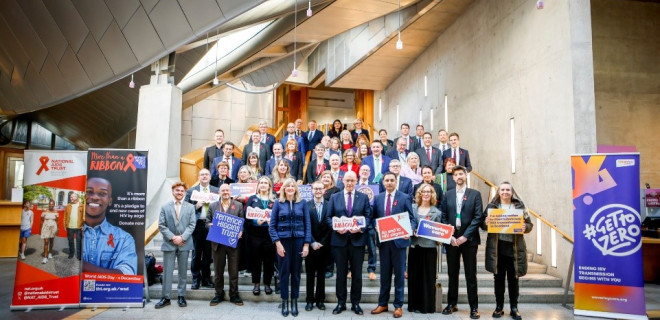The latest recommendations from the Infected Blood Inquiry have been criticised by the country’s leading HIV charity. Terrence Higgins Trust say that by the Inquiry failing to call for swifter compensation for those infected with HIV and their families, it is leaving those most impacted by the scandal in limbo.
Terrence Higgins Trust wrote to Sir Brian Langstaff, chair of the Infected Blood Inquiry, in May 2025, saying that those coinfected with HIV and Hepatitis C faced an unfair lottery in getting their claims processed.
The Infected Blood scandal has claimed thousands of lives and left many others with lifelong physical and emotional scars. It is estimated that of the over 1,250 who were infected with both HIV and Hepatitis C, there are around 250 still alive. They face waiting months for compensation offers, whilst the families of those who died due to their infection expect to be waiting years because of the arbitrary way the Infected Blood Compensation Authority selects claims for assessment.
Many of those co-infected with both HIV and Hepatitis C had to endure early treatments for both viruses with extremely harmful side effects. Survivors are still grappling with the long-term health consequences of those medications, on top of the harm caused by the viruses.
Richard Angell, Chief Executive of Terrence Higgins Trust, said:
“Sir Brian’s customary clarity has given way to more discretionary decision making for the Infected Blood Compensation Authority. The continuous buck-passing before someone does the right thing for these victims is not good enough. Those impacted by HIV as a result of this tragedy have endured unimaginable suffering - physically, mentally, and emotionally. Having borne the heaviest burden for the longest time, it is essential that their claims be prioritised.
“We work with one family whose young son died three decades ago because of AIDS-related illnesses caused by infected blood. His father now has dementia. It shouldn’t be too much for him to receive compensation whilst he can still remember his son.
“These new Inquiry recommendations do bring glimmers of hope. Sir Brian Langstaff’s insistence that the Government reconsider how to compensate people for the ongoing health effects of Hepatitis C for those infected with it and treatment for it is welcome.
“The psychological harm to the affected victims has been underestimated in the present compensation scheme, and we support the recommendation for supplementary compensation to this where appropriate.
“Other recommendations make some progress but not enough. The recommendation to remove the 1982 start date for claims is important, but we must also remove the end date, as we are aware of a case where a person was infected with HIV as a result of contaminated blood as late as 1995. Similarly, the recommendation to reconsider the amounts of compensation for unethical research is vital as at present they are inadequate. The burden of proof should be reversed. All those infected with HIV should be viewed as victims of unethical research unless evidence can be produced to show this is not the case.
“Justice delayed is justice denied. We need faster and fairer progress and those who have been waiting the longest, experiencing AIDS, early treatments and loss-after-loss, deserve to be prioritised”



